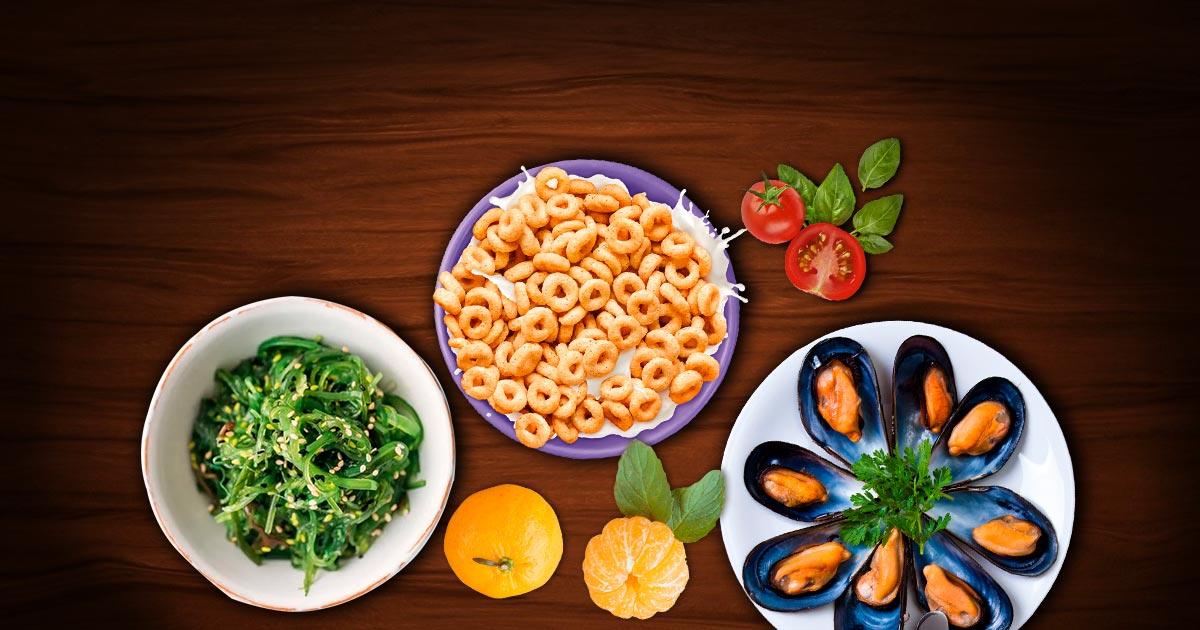Most Sustainable Foods – Nourishing the Planet, One Bite at Time

In this era of heightened urgency to mitigate the environmental repercussions of your daily routine, it is of utmost importance that you are equipped with the knowledge and agency to make conscientious decisions regarding the food you consume. So allow yourself to delve into the following insights, for they shed light on a selection of outstanding foods that have earned remarkable sustainability credentials. By embracing these most sustainable foods, you are truly embracing the crème de la crème of eco-friendly nourishment.
The Most Sustainable Food Sources
Below are some of the most environmentally friendly foods you can add to your daily diet;
Mushroom
Because you choose mushrooms as your preferred crop, you can take pride in knowing that they have a remarkably low environmental impact. By making use of recycled by-products from other crops as compost, mushrooms embrace a sustainable approach to growth. This not only reduces waste but also minimizes the strain on natural resources.
Furthermore, mushrooms are renowned for their efficient water usage. With a requirement of under two gallons per pound, they are considered one of the most water-conscious crops. By cultivating mushrooms, you are actively contributing to water conservation efforts and demonstrating your commitment to responsible farming practices.
Pulses
When you choose to incorporate beans, lentils, peas, and other legumes into your diet, you are not only making a nutritious choice but also actively participating in sustainable farming practices. These remarkable foods possess a range of benefits that contribute to a healthier planet.
Moreover, legumes offer a secondary advantage in the form of plant-based protein. As a valuable source of protein, they play a crucial role in supporting a meat-free or reduced-meat lifestyle. By incorporating legumes into your meals, you make an environmentally friendly choice, reducing the carbon footprint associated with meat production. They also provide a plant-based source of vitamin B12, which can be challenging to obtain on a vegan or vegetarian diet.
Mussels
While mussels can be harvested from the wild, the majority of them are cultivated through a method called aquaculture. This involves the use of long lines suspended in the water, providing an ideal environment for their growth. This innovative approach to mussel farming has a significantly lower environmental impact compared to traditional animal protein farming methods.
One of the remarkable advantages of mussel aquaculture is that it requires no land and does not rely on external feed. This means that the cultivation of mussels does not contribute to deforestation or habitat destruction, preserving natural ecosystems. By choosing farmed mussels, you actively support a sustainable food system that reduces the pressure on land resources and promotes the conservation of natural habitats.
Seaweed
One of the remarkable aspects of seaweed production is its minimal environmental impact. Unlike other forms of aquaculture or agriculture, seaweed harnesses everything it needs from the surrounding water. It thrives without the need for fertilizers, eliminating the risk of pollution and minimizing the strain on natural resources. By opting for seaweed, you actively contribute to a more sustainable food system that prioritizes efficiency and conservation.
The vast kelp forests that thrive at the bottom of the ocean play an essential and often undervalued role in combating climate change. These underwater forests serve as significant carbon sinks, effectively removing carbon dioxide from the atmosphere and storing it in their biomass. Due to their rapid growth rate, seaweed has the potential to absorb more CO2 than land plants, making it a powerful weapon in the fight against global warming. By carefully harvesting seaweed, we can harness its carbon sequestration capabilities while ensuring the sustainability of this valuable marine resource.
Cereals & Grain
When you choose to incorporate cereals and grains into your diet, you make a sustainable choice that has a low impact on greenhouse gas emissions. Cereals and grains emit only 1.4kg of CO2-equivalents per kilogram, making them an environmentally friendly option.
To further enhance the sustainability of your cereal and grain choices, consider selecting products grown within your own country. By opting for locally sourced cereals and grains, you reduce the distance traveled from farm to plate, minimizing food miles. This reduction in transportation not only supports local farmers and economies but also helps to reduce the carbon footprint associated with long-distance transportation. By prioritizing locally grown cereals and grains, you actively contribute to minimizing the environmental impact of your food choices.
Organic Fruits & Veggies
By choosing organic produce, you actively contribute to preventing the overuse of harmful chemicals that can have detrimental effects on ecosystems and human health. Organic farming embraces natural and eco-friendly practices, respecting the delicate balance of the environment. It prioritizes the use of organic fertilizers and pest management techniques that work in harmony with nature, ensuring the health and fertility of the soil over the long term.
Choosing fruits and vegetables that are in season aligns your dietary choices with the natural rhythm of the earth. In-season produce requires less energy-intensive practices, such as artificial heating, refrigeration, or long-distance transportation, to reach your plate. By embracing seasonal eating, you actively contribute to reducing the environmental impact of your food, as well as enjoying the freshest and most flavorful produce.
Opt for Eco Friendly Foods in Your Daily Meals
Embracing these sustainable foods empowers you to take control of your environmental footprint and make a positive difference in the world. By prioritizing eco-friendly nourishment, you become an agent of change, promoting a healthier planet for future generations.
So, go forth and savor the crème de la crème of eco-friendly nourishment, knowing that your choices can transform the world, one meal at a time.
